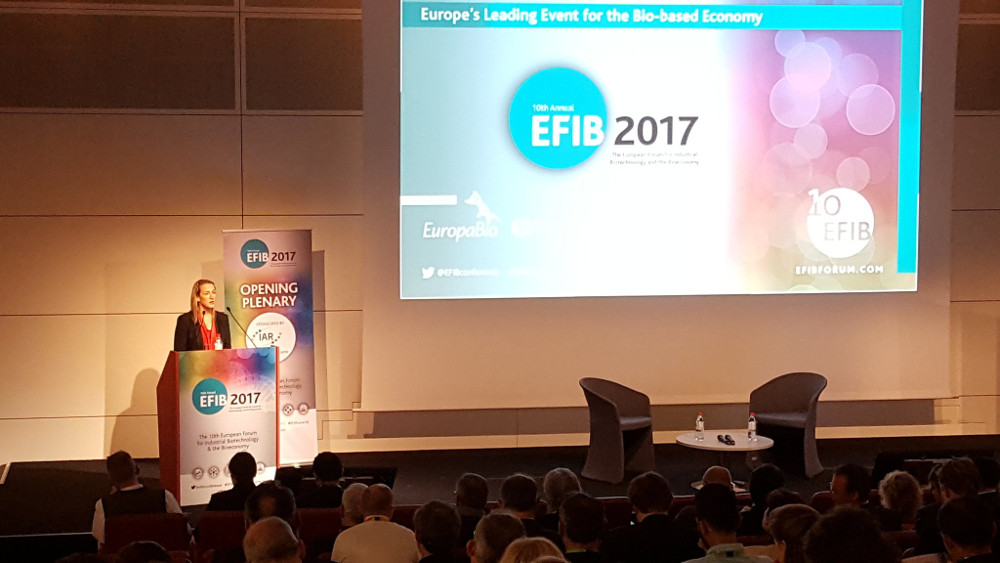
European bioeconomy entering the next level
A series of high-level conferences held in autumn and winter focused on current challenges to implementing an industrial scale bioeconomy in Europe. In November, the European Commission unveiled a new stock-take of progress in its Bioeconomy Strategy, ahead of an official revision planned in 2018. In a manifesto, stakeholders demand a holistic policy framework.
Is this industry delivering? Tom van Aken provocatively asked the audience. The CEO of biochemical company Avantium, which debuted in a €100M IPO at Euronext, was one of the keynote speakers during this year’s European Forum for Industrial Biotechnology (EFIB) in Brussels, organized by EuropaBio, the European Association for Bioindustries. Van Aken drew mixed conclusions from the past decade. According to him, although environmental challenges such as plastic waste and climate change enjoy high visibility, market entry for bio-based innovations such as PEF or FDCA are by no means a self-runner. You have to consider the retailers’ side to understand their needs and put in place efficient strategic partnerships from R&D to industrial production, he pointed out. With about 600 participants, the 10th edition of EFIB continued to offer a high-level discussion platform on how to operationalise the scale-up of European bioeconomy sector in the future. Industrial stakeholders from different sectors such as LEGO, IKEA, and L’OREAL reported on their progress in recent years. Daniel Calleja Crespo, Director-General DG Environment of the European Commission (EC) underscored the huge potential within the circular economy: Every waste is a wasted opportunity.
First review of the EC’s Bioeconomy Strategy published
In mid-November 2017, the EC presented a first review of the 2012 Bioeconomy Strategy, which will pave the way for an detailed revision of the Strategy expected in 2018. At a high-level Bioeconomy Policy Day meeting, Commissioner Carlos Moedas said: Faced with the current challenges of food security, climate change and industrial transformation, we have the responsibility to figure out how to best deal with the biological resources we have and how to put them to the best use. The review shows that dedicated EU funding for the bioeconomy has more than doubled from €1.9bn in FP7 to €4.52bn in Horizon 2020. It also recognises that further mobilisation of investments and a stable regulatory environment are still needed to scale-up the sector. In a manifesto, industry representatives, NGOs, and researchers demanded a holistic policy that considers people, planet, and profit. To achieve this, the revision must put in place a coherent policy and financial framework to support access to sustainably produced biomass, foster investments, and further develop the market for bio-based products, said Joanna Dupont Inglis, EuropaBio’s Director for Industrial Biotech.
In June, the European Investment Bank proposed a thematic investment platform focused on the circular bioeconomy to mobilise additional investors. The EC will provide up to €100m for the fund, with money drawn from Horizon 2020. Additional funds will be sought from other funding sources, public and private. In a workshop in December and during the European Bioeconomy Investment Summit in Helsinki more details will be discussed. Financial issues will also be on the agenda of the Global Bioeconomy Summit 2018, to which the German Bioeconomy Council invites stakeholders to Berlin from 19-20 April 2018.
(First published in European Biotechnology, Winter Edition 2017)


 Getty Images for Unsplash+
Getty Images for Unsplash+ Immunic/Nela Dorner
Immunic/Nela Dorner